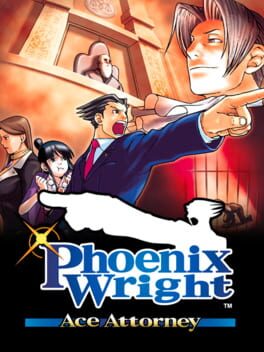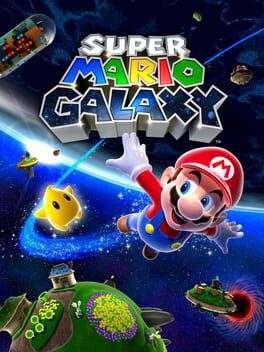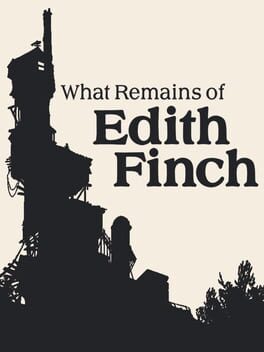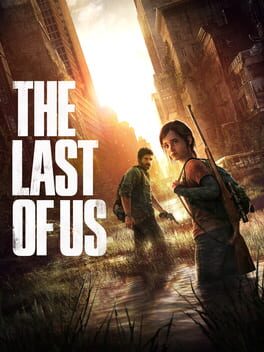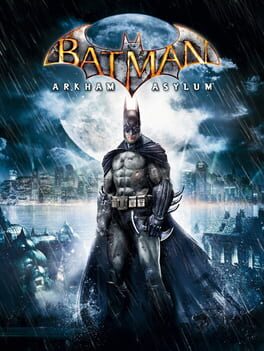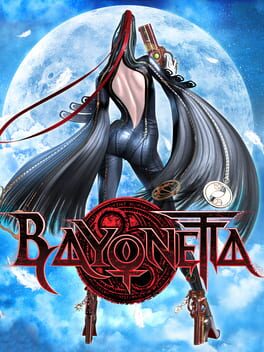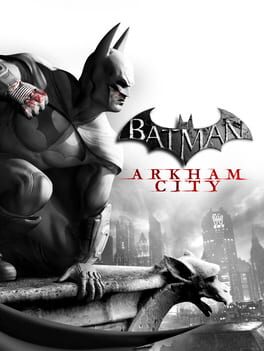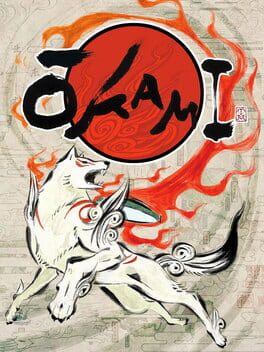FauxFroslass
1997
If I were ever asked for a video game that best defined my tastes in gaming, then it's easy enough for me to point back to the Final Fantasy franchise - but if I were to pick out a single one, Final Fantasy VII would be the first one that pops right back up. To me, this game is the perfect mix of fun gameplay, a great story, and all these years later, it does more than just simply hold up.
There's a whole lot more that I do want to say about this, but that'll have to wait till later - because this was also the first video game that I remember having cried at (many of you already know the moment, considering it's been spoiled numerous times already). Yet there's also an incredible feeling of satisfaction that comes forth from having accomplished everything that you possibly could within this game - and I've only sunk more time into this more than anything.
As it stands right now, it's my favourite video game of all time.
There's a whole lot more that I do want to say about this, but that'll have to wait till later - because this was also the first video game that I remember having cried at (many of you already know the moment, considering it's been spoiled numerous times already). Yet there's also an incredible feeling of satisfaction that comes forth from having accomplished everything that you possibly could within this game - and I've only sunk more time into this more than anything.
As it stands right now, it's my favourite video game of all time.
I think my only exposure to Ace Attorney prior to this was from the Takashi Miike movie and the memes that have come out between Phoenix Wright and Miles Edgeworth - but I think that if anything else does make this game every bit as fun as it is, it's the way in which the courtroom setting also fits too perfectly well with the anime silliness. There's never a moment where it's not funny, but it also mixes perfectly well with how dark some of these cases can be by nature.
If I ever did have any sort of complaint, it's a tad too slight - but I do know for sure this is a game series I'll be playing through a lot if I want to pass the time.
If I ever did have any sort of complaint, it's a tad too slight - but I do know for sure this is a game series I'll be playing through a lot if I want to pass the time.
2000
Somehow it took me over ten years to actually beat this one, but I think after having finally completed the main game I feel more than confident enough to say this is one of the best games of the Final Fantasy series - and an instant all-time favourite.
As a series retrospective, bringing back many familiar elements from the older games while mixing them together with mechanics that came from the preceding games, Final Fantasy IX feels like an entirely new game on its own. Yet just like the best of its series it always remains a highly engrossing narrative experience.
But if anything else best sums up what these games can do best, there's a bittersweetness to the journey of Final Fantasy IX that hasn't quite been matched by other games in this series. When it comes to how this game approaches the concept of what it means to live, especially as one knows their lifespan is limited, it's bound to make any player feel misty-eyed - even as you get a taste of the satisfaction that comes forth from beating its final bosses, this mood still lingers and just creates a more emotionally resonant epilogue, especially if you found yourself so deeply attached to these characters (all of whom have magnificently crafted arcs, as one can expect from Final Fantasy).
If it weren't for Final Fantasy VII, this would easily be my favourite of the series.
As a series retrospective, bringing back many familiar elements from the older games while mixing them together with mechanics that came from the preceding games, Final Fantasy IX feels like an entirely new game on its own. Yet just like the best of its series it always remains a highly engrossing narrative experience.
But if anything else best sums up what these games can do best, there's a bittersweetness to the journey of Final Fantasy IX that hasn't quite been matched by other games in this series. When it comes to how this game approaches the concept of what it means to live, especially as one knows their lifespan is limited, it's bound to make any player feel misty-eyed - even as you get a taste of the satisfaction that comes forth from beating its final bosses, this mood still lingers and just creates a more emotionally resonant epilogue, especially if you found yourself so deeply attached to these characters (all of whom have magnificently crafted arcs, as one can expect from Final Fantasy).
If it weren't for Final Fantasy VII, this would easily be my favourite of the series.
With regards to covering the Midgar portion of the original Final Fantasy VII, this remake does more than just do justice to the original but the expansions here are more than welcome.
I think that given how much could be happening within just the Midgar portion of the original, it feels nice to be able to explore a lot more - even if this new take leans more towards being incredibly sidequest heavy, but there's never a moment where I ever felt bored with taking on new "Odd Jobs" either. It feels nice to be able to get to know more of the people who live within Midgar, considering the expansive lore of Final Fantasy VII, but the fact that this game allows you to revisit that section at any time given as the original game blocks you from revisiting it until a certain point of Disc 2, it just feels nice - as a capsule of nostalgia and a means to show how expansive the worlds are.
The combat system has its charm, though part of me prefers the active time battle combat system from the original. But nonetheless, it brings back memories of playing through a battle from Kingdom Hearts, which was also a lot of fun in its own ways - and admittedly I do miss the random encounters that came by as it was a staple of the Final Fantasy games. That said, I do appreciate the fact that this revamped battle system is far more forgiving compared to the fact the original always leaves you wandering around looking for save spots, for you can always restart at any time before the battle to better accustom yourself to what comes ahead.
Count me excited to see where the rest of this story goes, because I'm definitely on board with what we have here so far. While I think the simplicity of the original, especially for a game for the first PlayStation still has my heart, the fact that a new generation will be introduced to Final Fantasy VII, revamped for today, will always be a plus in my eyes.
I think that given how much could be happening within just the Midgar portion of the original, it feels nice to be able to explore a lot more - even if this new take leans more towards being incredibly sidequest heavy, but there's never a moment where I ever felt bored with taking on new "Odd Jobs" either. It feels nice to be able to get to know more of the people who live within Midgar, considering the expansive lore of Final Fantasy VII, but the fact that this game allows you to revisit that section at any time given as the original game blocks you from revisiting it until a certain point of Disc 2, it just feels nice - as a capsule of nostalgia and a means to show how expansive the worlds are.
The combat system has its charm, though part of me prefers the active time battle combat system from the original. But nonetheless, it brings back memories of playing through a battle from Kingdom Hearts, which was also a lot of fun in its own ways - and admittedly I do miss the random encounters that came by as it was a staple of the Final Fantasy games. That said, I do appreciate the fact that this revamped battle system is far more forgiving compared to the fact the original always leaves you wandering around looking for save spots, for you can always restart at any time before the battle to better accustom yourself to what comes ahead.
Count me excited to see where the rest of this story goes, because I'm definitely on board with what we have here so far. While I think the simplicity of the original, especially for a game for the first PlayStation still has my heart, the fact that a new generation will be introduced to Final Fantasy VII, revamped for today, will always be a plus in my eyes.
2018
There's no denying how difficult this game can get, especially as you're trying to climb up or dash your way through each stage - and you'll inevitably end up dying at least a hundred times before reaching the next screen, but this game also finds that perfect balance between presenting that challenge and being incredibly fun. As far as modern day platformers can go, there aren't many that come by quite like Celeste, its simple aesthetic is pleasing to the eye, the music is wonderful, but it's also a brilliantly constructed psychological journey too on top of everything that this game does so well.
Madeline is a great character, but to think of her journey with climbing up the mountain as being her own chance to grow into a much better person than where she stands as is, there's a whole lot that you can really love about her as you keep playing. Compared to most other games that present these sorts of challenges for the players, Celeste being far more forgiving than most of them would only make for a fun experience, but you'd be surprised how much more rewarding it gets from there.
Madeline is a great character, but to think of her journey with climbing up the mountain as being her own chance to grow into a much better person than where she stands as is, there's a whole lot that you can really love about her as you keep playing. Compared to most other games that present these sorts of challenges for the players, Celeste being far more forgiving than most of them would only make for a fun experience, but you'd be surprised how much more rewarding it gets from there.
2017
Was waiting until I finished all five of this game's endings before I could write down a review of sorts, but replaying through it with different perspectives of the same story coming into play also leaves behind what I think might just be one of the most rewarding video gaming experiences that I've had in a long while. But aside from being able to take out something new from each route that NieR:Automata presents, this is also just one of the most engrossing interactive narrative experiences that I've ever had: and I don't put that lightly either.
This game isn't only a perfect mix of fun combat and role-playing, but the world that Yoko Taro presents here also might just be one of the most beautifully designed I've ever seen in any video game too. No matter what part of the game you're in, it's so easy to get lost with how wonderfully realized this dystopia is, even if it offers you to transport yourself so easily between access points, but it always seems like there's a reason for you to just keep getting immersed within this world as long as you can keep going. But even though the bleak setting may catch you from the moment you start the game, it's never free of Yoko Taro's own sense of humour either - which helps make for a livelier experience.
But even then, it never feels like it's afraid to get anywhere near as heavy as it can go. Whether it be from the game's philosophy, regarding the relationships between man and machine, the reasons why we continue fighting pointless wars and where they will bring us so many millennia from now, NieR:Automata never holds back: and it only results in an emotional rollercoaster from beginning to end, especially when you're finding yourselves so attached to these characters as you keep playing - and you come out loving them a great deal too.
Might just be one of the finest games of our generation, but also a defining work of art for our time too, I would argue.
This game isn't only a perfect mix of fun combat and role-playing, but the world that Yoko Taro presents here also might just be one of the most beautifully designed I've ever seen in any video game too. No matter what part of the game you're in, it's so easy to get lost with how wonderfully realized this dystopia is, even if it offers you to transport yourself so easily between access points, but it always seems like there's a reason for you to just keep getting immersed within this world as long as you can keep going. But even though the bleak setting may catch you from the moment you start the game, it's never free of Yoko Taro's own sense of humour either - which helps make for a livelier experience.
But even then, it never feels like it's afraid to get anywhere near as heavy as it can go. Whether it be from the game's philosophy, regarding the relationships between man and machine, the reasons why we continue fighting pointless wars and where they will bring us so many millennia from now, NieR:Automata never holds back: and it only results in an emotional rollercoaster from beginning to end, especially when you're finding yourselves so attached to these characters as you keep playing - and you come out loving them a great deal too.
Might just be one of the finest games of our generation, but also a defining work of art for our time too, I would argue.
2007
I feel like if there's any single game that best utilized what was possible with the Wii's motion controls (which were always very hit-or-miss, depending on the games), then Super Mario Galaxy would be that title. From all the 3D Mario games, this was also the one that I remember having sunken the most time into when I was a kid, but seeing how well it still holds up on the recent Switch port only reaffirms my belief that it it's also the best 3D Mario game in general.
It feels a little bit weird seeing this game again without the motion controls that made it feel so special from playing it on the Wii, but whenever I had the chance to play it just like I remembered it, there's something about seeing it in that way that just makes it feel special. But no matter the direction where Nintendo went with these Mario games, this also might be the most beautiful that any of them have ever been too - which made pointing at the screen at all the star bits feel so wondrous back in 2007.
As far as the 3D Mario games could ever go, this is arguably the most polished on every end - the controls run smoothly and the camera system (probably the biggest downside to both Super Mario 64 and Super Mario Sunshine) is the most reliable it's ever been in any Mario game too. Yet this also might just be every bit as gorgeous a Mario game has ever looked, given how Nintendo peaks in this department with the Zelda series, and it's also got what may be the best soundtrack that you'd find in any Mario game too.
It feels a little bit weird seeing this game again without the motion controls that made it feel so special from playing it on the Wii, but whenever I had the chance to play it just like I remembered it, there's something about seeing it in that way that just makes it feel special. But no matter the direction where Nintendo went with these Mario games, this also might be the most beautiful that any of them have ever been too - which made pointing at the screen at all the star bits feel so wondrous back in 2007.
As far as the 3D Mario games could ever go, this is arguably the most polished on every end - the controls run smoothly and the camera system (probably the biggest downside to both Super Mario 64 and Super Mario Sunshine) is the most reliable it's ever been in any Mario game too. Yet this also might just be every bit as gorgeous a Mario game has ever looked, given how Nintendo peaks in this department with the Zelda series, and it's also got what may be the best soundtrack that you'd find in any Mario game too.
2015
So I ended up getting Bloodborne as my very first PlayStation 4 game in 2019, and at that time, I nearly gave up on it after my first boss encounter. But after having come back to it just now, what I once thought would be wholly unrelenting became one of the most immersive and astonishing gaming experiences that I've ever had.
Everything about this game's difficulty has already been said, it may not always be very forgiving but there's a nice challenge that comes forth because Bloodborne gives you a chance to figure out a fighting style that works for you - and as you keep playing with that style, the once-challenging boss fights are more than manageable.
But one's also got to love how much effort has been put into establishing this lore too. Above everything else, it always gives you a reason to want to come back, even with the increasing difficulty.
Everything about this game's difficulty has already been said, it may not always be very forgiving but there's a nice challenge that comes forth because Bloodborne gives you a chance to figure out a fighting style that works for you - and as you keep playing with that style, the once-challenging boss fights are more than manageable.
But one's also got to love how much effort has been put into establishing this lore too. Above everything else, it always gives you a reason to want to come back, even with the increasing difficulty.
1994
There's a case that can be made that Final Fantasy VI might arguably be the single greatest narrative experience that any Nintendo console would ever come to know, but all these years later, even with the 16-bit visual style, this game doesn't only hold up very well, it's easy enough to see why this game is the gold standard for many JRPGs that have come since.
Among many things that this game has, it has what may be one of my favourite stories that any video game would ever come to know - one that feels beautifully fleshed out, and finds a reason to make every side quest worth looking into, but the fact that there's always something rewarding to be found with every new moment in Final Fantasy VI is a feeling that many games that have come since cannot replicate. As you keep playing, it's easy to find yourself getting all the more attached to its characters - aided by the game's challenge of making sure that you don't simply stick by one set of fighters to continuously grind up.
But I think that what made this game's narrative hold up beautifully is the way that its setting feels so lived in, like it were one where we found ourselves a part of. In a sense, the game's narrative being driven by the concept of magic granting oneself a sense of power would perfectly apply when looking at how in reality, there's always that drive for power everywhere we are - yet we never think explicitly about what it means to have too much of that. For this reason alone, it makes Kefka the perfect villain, because he embodies the purest of all evils, but also for the reason that he's only one force who only cares about growing stronger without consequence.
While my heart still admittedly belongs to Final Fantasy VII, you can't really argue about Final Fantasy VI's influence either. This is just everything I could want from any game, from the perfect set of characters, fun combat, and the music (some of Nobuo Uematsu's very best work too), there's not a thing about this game I would change because it's just too perfect as is.
Among many things that this game has, it has what may be one of my favourite stories that any video game would ever come to know - one that feels beautifully fleshed out, and finds a reason to make every side quest worth looking into, but the fact that there's always something rewarding to be found with every new moment in Final Fantasy VI is a feeling that many games that have come since cannot replicate. As you keep playing, it's easy to find yourself getting all the more attached to its characters - aided by the game's challenge of making sure that you don't simply stick by one set of fighters to continuously grind up.
But I think that what made this game's narrative hold up beautifully is the way that its setting feels so lived in, like it were one where we found ourselves a part of. In a sense, the game's narrative being driven by the concept of magic granting oneself a sense of power would perfectly apply when looking at how in reality, there's always that drive for power everywhere we are - yet we never think explicitly about what it means to have too much of that. For this reason alone, it makes Kefka the perfect villain, because he embodies the purest of all evils, but also for the reason that he's only one force who only cares about growing stronger without consequence.
While my heart still admittedly belongs to Final Fantasy VII, you can't really argue about Final Fantasy VI's influence either. This is just everything I could want from any game, from the perfect set of characters, fun combat, and the music (some of Nobuo Uematsu's very best work too), there's not a thing about this game I would change because it's just too perfect as is.
Works beautifully as a nice experiment with being a part of the events that took place within the lives of the Finch family by making you a part of them, though I think What Remains of Edith Finch finds its strengths lying in the greater impact of where they all would lead into.
If there's any better way to describe what playing through this game feels like, it's almost like you're hoping to find a place where things can turn out for the more hopeful considering all the curses that befell the Finch family, but it's also a whole lot of fun seeing how their stories came about - and the unique art styles which they take upon too.
Definitely a worthwhile experience for as quick as it is, even if the content doesn't quite make it replayable.
If there's any better way to describe what playing through this game feels like, it's almost like you're hoping to find a place where things can turn out for the more hopeful considering all the curses that befell the Finch family, but it's also a whole lot of fun seeing how their stories came about - and the unique art styles which they take upon too.
Definitely a worthwhile experience for as quick as it is, even if the content doesn't quite make it replayable.
2013
Took me long enough to actually finish this game, but after having done so, I can say with relative ease that The Last of Us is indeed worthy of all the praise that it receives. For as much as it tells a straightforward narrative, there's a great deal of work put into how the atmosphere has been created - thus making you feel like you're a part of this situation and able to connect with the characters the more time you spend with them.
But that's also what makes The Last of Us as enthralling as it is, because you're seeing a wonderful father-daughter dynamic of sorts build between the relationship of Joel and Ellie - compromised by their own worldviews as a result of everything that they've been through. It always leads to emotional farewells with side characters, but also puts you within that spot of wondering how everything could have been done differently even though the inevitable is bound to happen.
A good amount of this is fun, but other moments can get distressing, but that's also what it feels like to see the world through Joel and Ellie's eyes.
But that's also what makes The Last of Us as enthralling as it is, because you're seeing a wonderful father-daughter dynamic of sorts build between the relationship of Joel and Ellie - compromised by their own worldviews as a result of everything that they've been through. It always leads to emotional farewells with side characters, but also puts you within that spot of wondering how everything could have been done differently even though the inevitable is bound to happen.
A good amount of this is fun, but other moments can get distressing, but that's also what it feels like to see the world through Joel and Ellie's eyes.
Quite shocked I never was able to get around to these games back when I was still undergoing my Batman phase as a child, but the best thing that Batman: Arkham Asylum did for me was remind me of how great it felt to have underwent that phase back then.
The great attention to detail put into the world of Arkham Asylum, turning it into a labyrinth makes the exploration of the enclosed setting feel like its own world, but it also creates a perfect atmosphere for the game too. It would be easy enough to take a character like Batman and make him the star of just about any other superhero video game, but instead what's been brought out here is a straight-up horror game - never afraid to go even more twisted as it goes on.
But above all, it's also very briskly paced, while feeling very free enough to that point it actually feels bigger than it actually is. Impressive stuff.
The great attention to detail put into the world of Arkham Asylum, turning it into a labyrinth makes the exploration of the enclosed setting feel like its own world, but it also creates a perfect atmosphere for the game too. It would be easy enough to take a character like Batman and make him the star of just about any other superhero video game, but instead what's been brought out here is a straight-up horror game - never afraid to go even more twisted as it goes on.
But above all, it's also very briskly paced, while feeling very free enough to that point it actually feels bigger than it actually is. Impressive stuff.
2009
The fast pacing of Bayonetta is probably the biggest selling point of this game, but after a fair amount of practice, working your way through the combos should be enough of a breeze. But if there's anything else that makes Bayonetta work as well as it does, it never really punishes you after dying but another case of trial-and-error battling in which you're made to find another fighting combo that works best for you. It always keeps you on your feet, it's very addicting, and above all, the title character is always a blast to play as, whether it just be from her design or her one-liners.
It takes a lot of time to get used to the nature of those quick time events, because if you end up messing those ones up, they cause dire consequences - from losing a bunch of your health or in other cases, instant death, but thankfully they're not severely punishing to that point it ruins the game. Unfortunately, the fact that some of them are so frequent can be a bit of a drawback for some, yet it feels nice to be quick on your feet.
As someone who was never big on hack-and-slash games, this was a nice refresher.
It takes a lot of time to get used to the nature of those quick time events, because if you end up messing those ones up, they cause dire consequences - from losing a bunch of your health or in other cases, instant death, but thankfully they're not severely punishing to that point it ruins the game. Unfortunately, the fact that some of them are so frequent can be a bit of a drawback for some, yet it feels nice to be quick on your feet.
As someone who was never big on hack-and-slash games, this was a nice refresher.
2011
Everything great about Arkham Asylum dialed up within an open world setting. But the titular setting also feels like it is only building up to give you more reason to explore as the caped crusader, whilst being contained enough to remain as brisk as it is.
The variety to the enemies in Arkham City makes the combat all the more fun, as they feel like there's always something putting your own knowledge of button combos to the test the more the game goes on - leaving you perfectly prepared for the game's boss fights. On that note, the game's boss fights (especially the Mr. Freeze fight) feel like they're building off everything that one would know their respective supervillains are capable of, and as a result are just as fun to play out as one could hope from any good superhero video game.
Yet on the whole, it's also a perfectly paced narrative - one whose twists add more to the game's emotional payoff, never held back by the free roaming nature of the game or its many side quests. As far as superhero games can go, this might just be the perfect one.
The variety to the enemies in Arkham City makes the combat all the more fun, as they feel like there's always something putting your own knowledge of button combos to the test the more the game goes on - leaving you perfectly prepared for the game's boss fights. On that note, the game's boss fights (especially the Mr. Freeze fight) feel like they're building off everything that one would know their respective supervillains are capable of, and as a result are just as fun to play out as one could hope from any good superhero video game.
Yet on the whole, it's also a perfectly paced narrative - one whose twists add more to the game's emotional payoff, never held back by the free roaming nature of the game or its many side quests. As far as superhero games can go, this might just be the perfect one.
2006
Easily one among the most gorgeous video games that I've ever played, but I feel like even that would be putting my experience of playing through Okami very lightly. The art design is remarkable, but everything about what Okami presents as a narrative makes for a highly rewarding experience from start to finish, for all of its references to Japanese folklore it never feels like it alienates outsiders but brings them into a new world with such ease.
As far as games that are clearly inspired by The Legend of Zelda have gone, this is easily one among the very best - ranking right alongside most of said series' best games too, but seeing how everything comes together from the beautiful world designs and the fun combat and side quests, there's always a reason to get lost throughout the world of Nippon through the eyes of Hideki Kamiya. While it may be easy enough to get the gist of how the combat with certain enemies work, you're always made to learn how to put every new technique into play when you're entering new battles - and this also results in some of the most rewarding boss fights that you could ever ask for.
An easy all-time favourite for me, I can't wait to play through it again and 100% it.
As far as games that are clearly inspired by The Legend of Zelda have gone, this is easily one among the very best - ranking right alongside most of said series' best games too, but seeing how everything comes together from the beautiful world designs and the fun combat and side quests, there's always a reason to get lost throughout the world of Nippon through the eyes of Hideki Kamiya. While it may be easy enough to get the gist of how the combat with certain enemies work, you're always made to learn how to put every new technique into play when you're entering new battles - and this also results in some of the most rewarding boss fights that you could ever ask for.
An easy all-time favourite for me, I can't wait to play through it again and 100% it.

